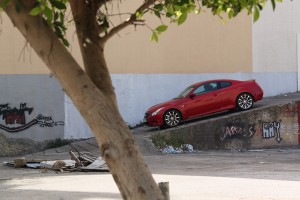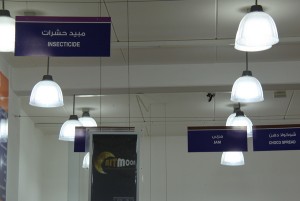As I write, half of Beirut is in the supermarket stocking up for the weekend. The experience will be hurried and crowded and reminiscent of this time last year and every big holiday before that, when the same shoppers swore, “Never again.”
But there are a couple of variations on the theme, because there are two types of supermarket in the city. There’s the gleaming new complexes with floors so clean you could eat your purchases off them, the type that I wrote about previously. Then there are the local supermarkets, a bit smaller, somewhat cheaper, and a lot more higgledy piggledy.
If you were to wake up from some deep sleep in one of the glam superstores, it would take you a while to work out you were in Lebanon, surrounded as you are by American cake mixes, Australian mangoes, Marmite and rice vinegar.
But the second kind, as my astute brother-in-law put it, is Beirut in miniature. The aisles weave between generously overladen shelves, and when the shelves run out the goods are stacked on the floor, piles of tins listing gently towards vats of olives, which are double parked alongside the crates of eggs. Shoppers squeeze through narrow gaps only to find themselves up against a wall of flat bread or of toilet rolls in a dead end having to reverse out.
Here and there, with the Bonne Maman conserve and Hershey’s chocolate bars, you happen upon an incongruous touch of the west just like in the city at large. Bystanders – who can only be staff – tap their cigarettes on ashtrays and chat and watch the comings and goings just as the military men on the streets watch and wait and smoke.
And as in town there’s always someone to help out with directions; in the Hikme branch of Charcutier Aoun its a kindly gentleman who greets you as you descend the stairs to the lower level, eager to make your shopping experience more successful by guiding you around the goods. He’ll even help you park your trolley if you need it.



